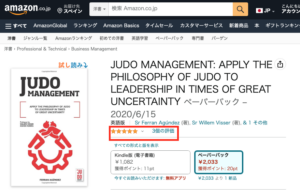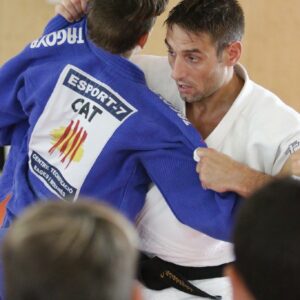“Sport and professionalism” is the keynote speech of Willem Visser, International Lecturer 8th Dan Judo IJF, at the International Congress, Sport Science and Research Institute Tehran; (9/11 – 12/11 2020).
Both ‘turnover’ and ‘profit’ can be important aspects in sport promotion.
Turnover and profit strengthened each other and, if in balance, it will be one of the best aspects in sport promotion.
Working with ‘turnover’ and ‘profit’ is an important principle in ‘Sport and Professionalism’.
The conclusion can also be, that a number of the executive board members must have great knowledge and experience in business and business organisation. And the other part of the board member team must have great knowledge and experience in sport and top level sport!
‘Sport and Professionalism’ as a phenomenon cannot exist without science.
Almost all kind of science can be additional to the development of sport and top level sport, for example: physiology, psychology, bio mechanics, motor behaviour, medical science, nutrition; and also sport management, sport strategy, sport marketing and the sport jurisdiction. Even aerospace technology is used in for example aspects of medicine, nutrition, development of sport cloths etc.
Threat:
Many times and in a number of countries there is a gap in between the sport science and the active field of sport, because of egoism, vanity, obsession and self-satisfaction!
The solution is cooperation between sport science and the active field of sport.
Egoism must be pride, vanity must be love for the sport, obsession must be dynamics and self-satisfaction must be appreciation for performances and ideas of others.
A top level athlete has ambition, is making a lot of efforts, has to overcome all kind of resistances to make top level results.
For a top level athlete it will be good to realize, that the athlete needs a team of professionals around her/him; trainers, coaches, technical directors, medical and mental staff, sponsors, sport marketing specialists, communication advisers etc.
And… if the whole team of professionals wants to improve continuously, wants to win all the time, than gives this attitude a huge boost of energy. The energy gives the impulse to move, faster than others, in order to gain the best result. This kind of energy is coming from inner strength and inspiration.
Because of the great importance of sport and professionalism, professional leadership is strictly needed in all aspects and level of sport.
For this professional leadership earlier mentioned definition is applicable:
“Specialist, honest, to be able and willing to cooperate”.
To get results in the field of top level sport, top level coaching is needed as well.
Leadership by coaching:
If leaders are leading by the principles of coaching than they will achieve a better executing of the task and a better result.
Coaching is a new style of leadership:
– Supporting instead of hierarchy;
– Real and honest evaluation instead of blaming;
– External motivating aspects are replaced by internal motivation;
(Internal motivation is in the spirit of each human being. “The spirit is the key, but where is the key?”)
– Changes are not feared anymore, but people enjoy changing;
– Frankness and being honest instead of mysteriousness and censor;
– Pressure is becoming a challenge.
By this new style there is existing commitment and by those commitment one wants to be involved in decisions which have to be made.
This new style implicated that the responsibility of the sportsmen/women has to enlarge.
(And there is a difference between responsible and responsibility. Responsible is mostly reactive and it is implicating judging. Responsibility implicates to make choices and to choice implicates freedom.
In this new style results will be achieved because of the development of the individual sportsmen/women.
In this new style of coaching a leading coach (or coaching leader) can use one’s own strength and identity. The coach has to be dynamic, innovative and creative. The coach must be very good in guiding difficult interpersonal situations as well as group situations.
The coach must be an inspiring leader.
Alexander the Great, 356-323 before Christ, gave a good example of inspiring coaching. He was innovative at the battlefield in the way he was leading his troops. He inspired his soldiers tremendously. Before each battle he had the custom to give a pep talk for his officers and soldiers. “The last battle was won by you all, because you are great and I know for sure that you all will win again”.
Conclusions
In the beginning of this article I was describing some definitions both, sport and professionalism.
The definitions of sport make clear that sport and physical education have tremendous values: physically, psychologically, mentally, socially, etc. all seen in relation with building up and developing character and personality.
The definition of professionalism includes the threats of sport:
“Cool, hard, pitiless and calculating” (one of the definitions) can lead to excesses as we all know.
But building up, developing and using the own identity, the own power, dynamics, innovation and creativity (the common values) will give sport and professionalism the great value.
Professionalism in the definition of being “specialist, honest, to be able and willing to cooperate” will be a guarantee for the high value of professional sport.
Living according to the Judo principle:
“coming to an optimal development of all potential human forces, based on integrity, humility, respect, patience and compassion for benefit and general well-being”
will justify the existence of the unique phenomenon sport and professionalism.
Willem Visser
Executive coach, Strategic Adviser, International Lecturer; 8th Dan Judo IJF
With gratitude to all my teachers, specialists, colleagues and especially all the judoka that I was allowed to guide and to coach.
Sources and inspiring professionals:
Van der Horst, Cobben, Abe, Saitoh, Yamashita, Uemura, Sugawara, Murata, Hosokawa, Komata, Takahashi, Nakamura, Kasuga, Kawashima, Kariya, Brousse, Besson, Rougé, Ruska, Geesink, de Cree, Barta, Vachun, Viser, Lascau, McConnell, Snijders, Sins, Hoogendijk, Boersma, Odinot, van Dijk, Klok, Agúndez, Landsberg, Covey, de Waal, DeCaluwe, Drucker, Franzen, Goldratt, Hammer, Kets de Vries, Kotler, Mastenbroek, Mintzberg, Peters, Porter, Quinn, ten Bos, Trompenaars, Vinke, Weggeman, Wissema and many others.
.



